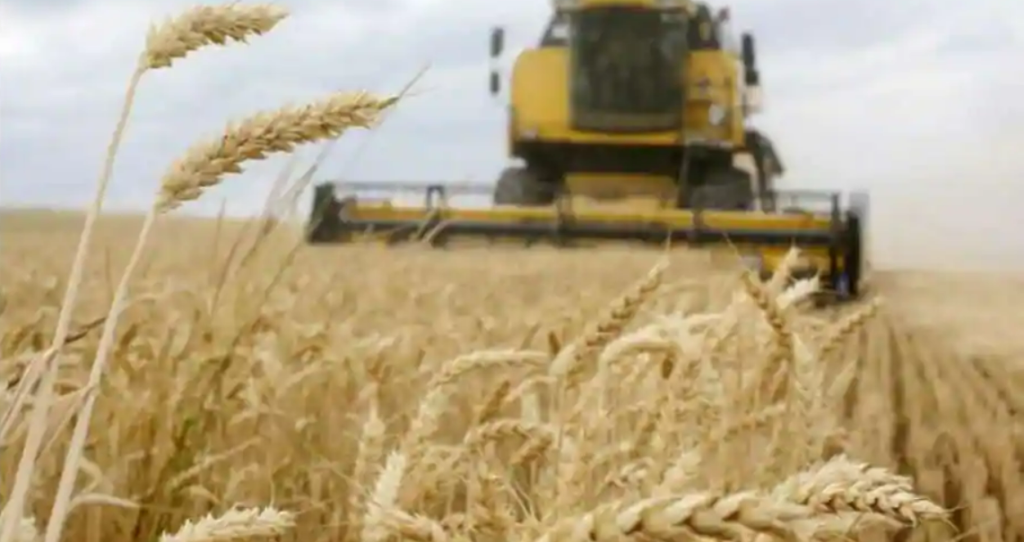Russia’s invasion of Ukraine is endangering more than only the lives of Ukrainians.
The war is also on course to generate a worldwide increase in severe hunger and even starvation.
Many Middle Eastern countries are concerned about an impending grain shortfall, as Russia and Ukraine jointly account for 30% of world wheat exports.
Russia is the world’s greatest wheat exporter, followed by Ukraine in fourth place, and the two countries together account for 19% of global corn exports.
If the battle in Ukraine continues for several weeks longer, Ukrainians will be unable to plant wheat, while Western sanctions will prevent Russia from selling its produce.
As a result, grain prices will continue to climb sharply, generating sharp price increases in bread, milk, meat, and other goods.
Lebanon gets 81 percent of its national wheat consumption from Ukraine and 15 percent from Russia, according to figures from the FAO’s 2020 balance sheet.
Egypt imports 60 percent of its wheat from Russia and 25 percent from Ukraine.
Turkey has a similar ratio: Russia accounts for 66% of wheat imports, while Ukraine accounts for 10%.
Several Middle Eastern governments, particularly those of Egypt, Lebanon, Libya, and Turkey, may find it difficult to pay for the rising grain costs and may be compelled to curtail or even eliminate bread subsidies, triggering violent popular protests that could overthrow some of them.
Egypt is scrambling to locate alternative wheat supplies after Russia’s invasion of Ukraine placed the country’s supply in peril.
Because the country imported nearly 85% of the wheat it required last year from Russia and Ukraine, Abdel Fattah al-government Sisi’s will need to find alternate sources of supply as soon as possible.
The Egyptian government had to cancel an international tender for the supply of wheat from France last week because only one tender was received, rather than the statutory minimum of two, and Cairo hastened to call a new tender 48 hours later.
But, in view of the fact that last week the price of wheat reached a 14-year high, there is no doubt that it would have to pay much more for the same quantities.
The price of bread has been a politically explosive issue in Egypt as on several occasions in the past 50 years it triggered angry protests, to which the Police usually responded by firing shots over the heads of demonstrators. Particularly strong protests were staged in March 2017 in Alexandria, Giza and many other areas after the government cut the supply of subsidized bread amid an economic crisis.
Also during the so-called “Bread Intifada” in January 1977 violent protests broke out and the Egyptian security forces killed 70 people and wounded more than 550 protesters, but in the end the government was forced to re-institute the subsidies.
Bread subsidies are considered a red line among Egyptians and people in other countries in the Middle East, as they are a staple for every family in the region. Bread is sold at very low prices, for example, a subsidized flat loaf costs 0.05 Egyptian pounds, less than one US cent, which covers only a small part of the real cost of producing it and the government coffers cover the rest.
Lebanon is facing a huge problem with grain supplies, as it imports more than 80 per cent of the grain it needs from the Black Sea and does not have a strategic stockpile of grains due to the enormous explosion in the port of Beirut in August 2020 which destroyed its only large grain silo.
Furthermore, as its economy has been facing a large-scale, multi-dimensional crisis, including a banking collapse, a liquidity crisis, and sovereign default, it may not be able to pay the skyrocketing prices for the grain it needs.
Turkey’s economy has been faltering in the past three years, and the sharp devaluation of the Turkish lira has forced the majority of its estimated 81 million people to increase consumption of wheat-based products at the expense of the protein, increasing in this way the need for grain.
Moreover, the approximately 5 million refugees hosted in Turkey have bread as their main food. All this is coupled with the fact that Turkey is a major producer of pasta, flour, biscuits and semolina. Turkey is now a key player in the international wheat market, as its grain imports have increase to record levels.
In 2021, Turkey imported 64.6 percent of its wheat from Russia and 13.4 per cent from Ukraine.
WION News
